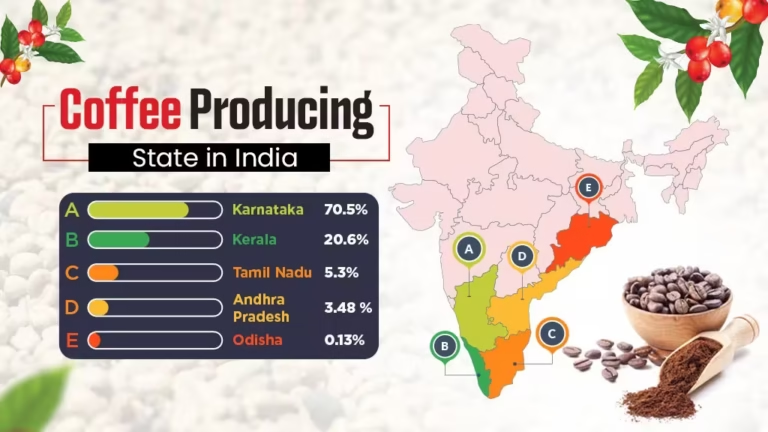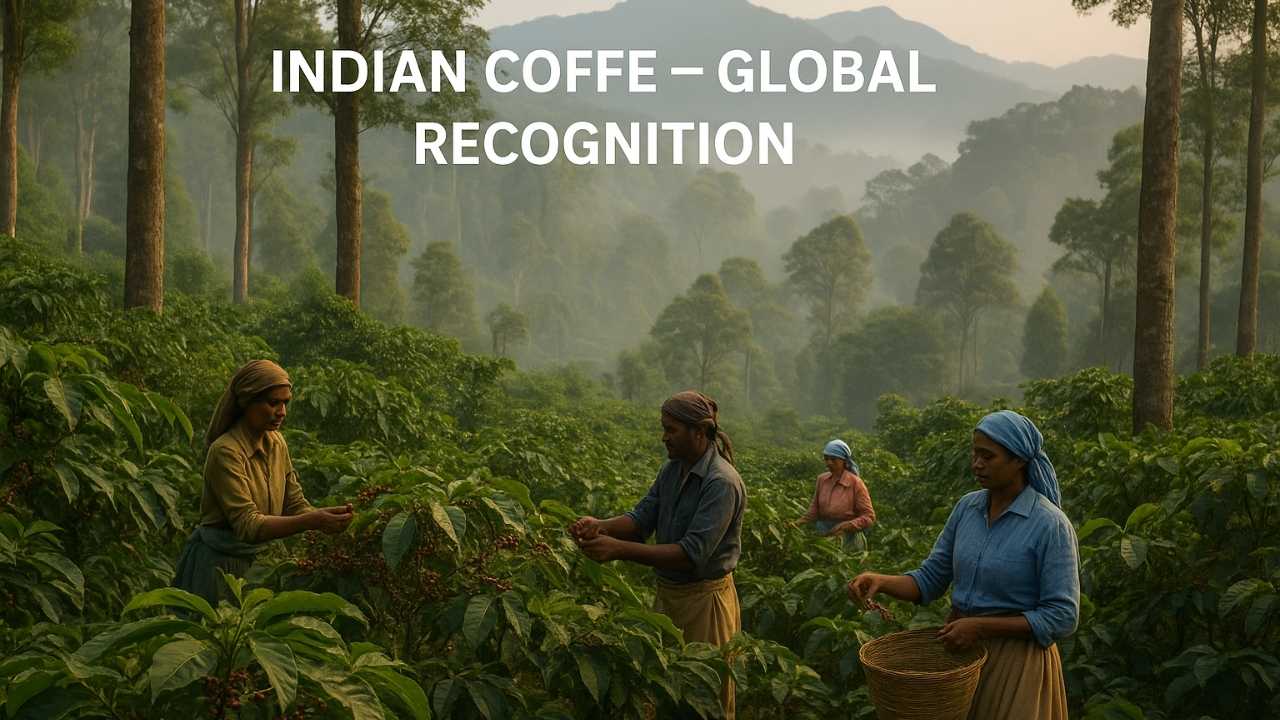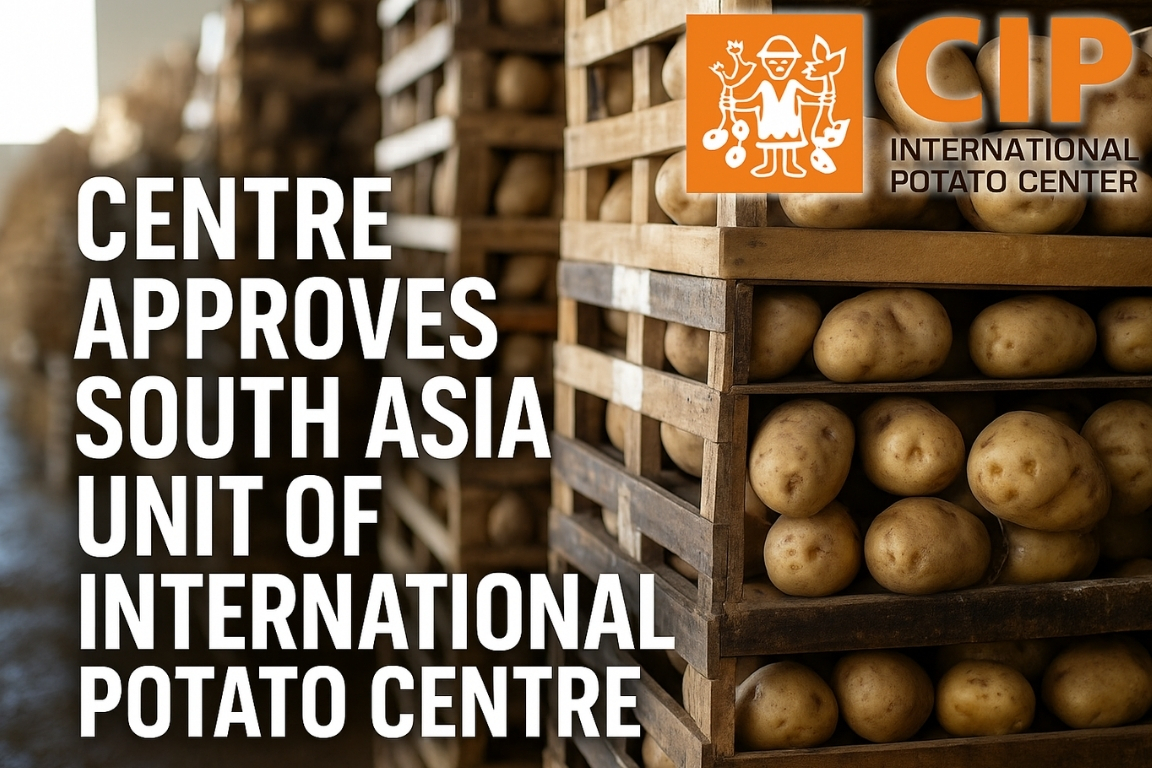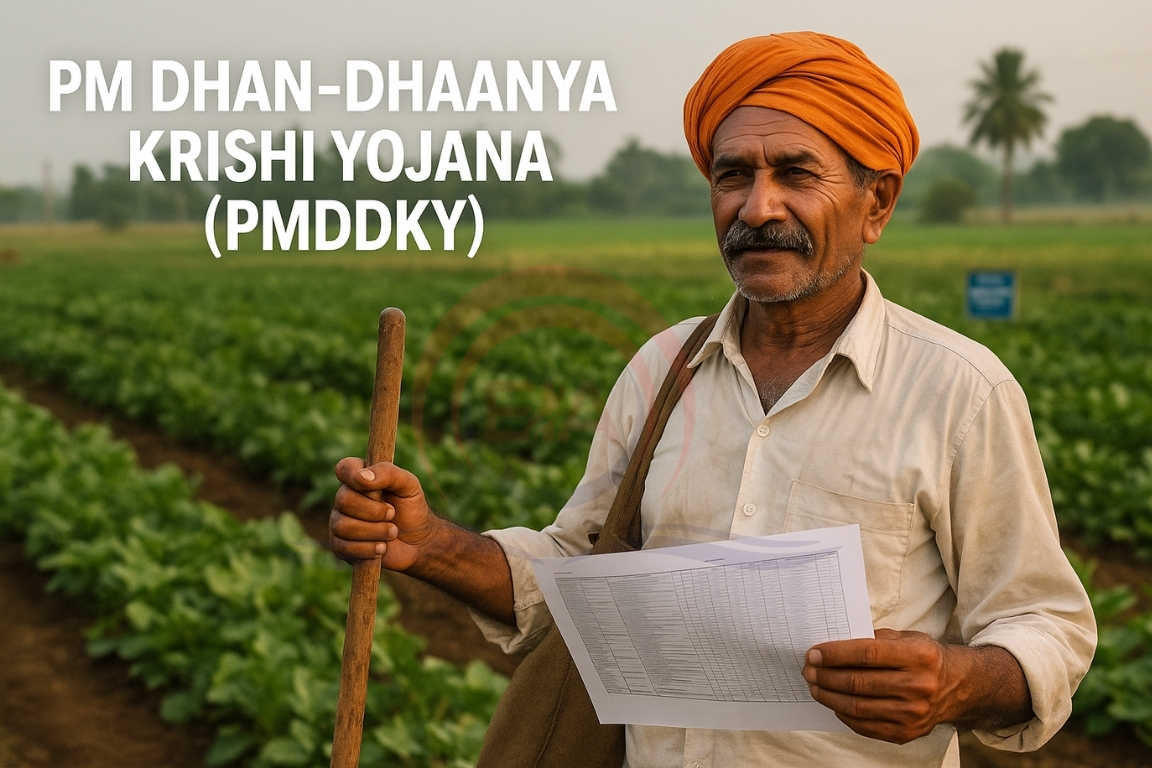The Prime Minister of India recently highlighted that Indian coffee is gaining increasing global recognition for its quality and unique flavour, boosting export potential and farmers’ income.
About Coffee
- Coffee is a tropical plantation crop usually grown under the shade of tall trees.
- It is valued worldwide for its aroma and flavour, making India one of the key producers in Asia.
- There are two main varieties cultivated in India:
- Arabica – smoother, less caffeinated, and aromatic.
- Robusta – stronger flavour, higher caffeine, and disease-resistant.

Major Coffee-Growing States
- India’s coffee cultivation is mainly concentrated in the Southern states:
- Karnataka – produces over 70% of India’s total coffee.
- Kerala and Tamil Nadu – important secondary producers.
- Andhra Pradesh and Odisha – emerging cultivation areas.
Climatic and Soil Requirements
- Altitude: 600–1,600 metres above sea level (hill slopes).
- Temperature: Between 15°C and 28°C.
- Rainfall: Requires 150–250 cm annually.
- Soil: Well-drained loamy soil rich in humus, iron, and calcium.
- Dry weather is essential during the ripening of coffee berries.
Export and Global Market
- Europe is the largest importer of Indian coffee.
- Key importing countries: Italy, Germany, Belgium, Japan, South Korea, and Middle Eastern nations.
- Indian coffee, known for its shade-grown and eco-friendly cultivation, is gaining global demand for its distinct taste and sustainable farming practices.
Conclusion:
Indian coffee’s growing global reputation presents an opportunity to boost exports, farmer income, and rural employment, while reinforcing India’s image as a producer of high-quality, sustainable coffee.
This topic is available in detail on our main website.





